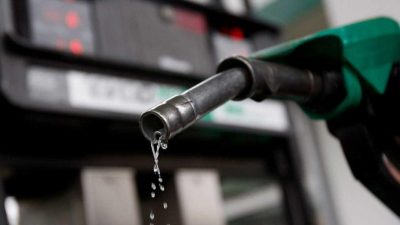Documents seen by TheCable showed that about 110 fuel cargoes were received at various terminals in Warri, Port Harcourt, Calabar, and Lagos between October 1 and November 11.
The products imported within the period include premium motor spirit (PMS), known as petrol; automotive gas oil (AGO), also called diesel; and aviation fuel (Jet-A1).
A breakdown showed that 1.52 million MT of petrol, 414,018 MT of diesel, and 13,500 MT of Jet-A1 were imported.
The transaction translates to 2.02 billion litres of petrol, 487.1 million litres of diesel, and 16.46 million litres of jet A1 — totalling 2.52 billon litres of petroleum products.
Out of the total import volume, the NNPC’s share was 789,721 MT of fuel (1.05 billion litres) — representing 40.5 percent.
NNPC’S POSITION ON PETROLEUM PRODUCTS IMPORTS
Speaking on November 12 at the 42nd Nigerian Association of Petroleum Explorationists (NAPE) annual international conference in Lagos, Mele Kyari, NNPC’s group chief executive officer (GCEO), said the national oil company has stopped importing fuel.
Kyari said the company is now off-taking products from the Dangote refinery and other local refineries.
“Today, NNPC does not import any product, we are taking only from domestic refineries,” he had said.
But in a statement on Friday, the national oil firm said Kyari was misquoted.
“The GCEO’s statement, ‘Today, NNPC does not import any product; we are only taking from domestic refineries’, was taken out of context,” the statement reads.
“It should not be construed to imply that NNPC Ltd. is obligated to be the sole off-taker of any refinery or that we will no longer import fuel.
“While NNPC prioritises sourcing products from domestic refineries, this is contingent upon economic viability. If local supply is cost-effective, it will be preferred, but the same principle applies to other marketers, who will also evaluate total costs when deciding whether to buy locally or import.”
THE FUEL IMPORTATION SAGA
Since the federal government announced the deregulation of the downstream sector on October 11, the Dangote refinery has embarked on a ferocious campaign that seeks an end to the importation of petroleum products.
On October 29, Aliko Dangote, founder of the Dangote Group, said the refinery had over 500 million litres of petrol in stock, but retailers were not buying — resulting in financial losses for the company.
“I am expecting the NNPC or the marketers to stop importing, they should come and pick because we have what they need,” he had said.
On November 1, the Independent Petroleum Marketers Association of Nigeria (IPMAN) said petrol from the refinery is more expensive compared to buying from other sources.
The oil marketers vowed to import the commodity and sell below the refinery’s price as well as the amount being sold by the Nigerian National Petroleum Company (NNPC) Limited.
Responding to the threat, the refinery said any oil marketer that sells petrol cheaper than the price it offers is importing substandard products.


